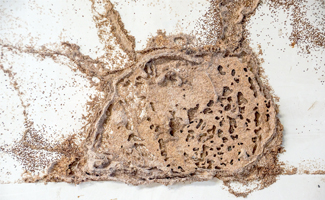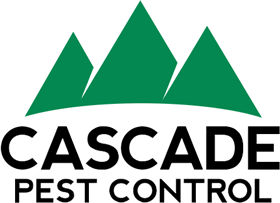Author: Kurt Treftz, Cascade Pest Control
 Termites often rank among the most dreaded pests for homeowners, because colonies can be difficult to detect and termites can cause significant structural damage before you ever notice their presence. While termites can be tough to spot without a close inspection, there are a number of key signs that can help you – and your termite control expert – identify a termite infestation in your home or business. The process of dealing with termite pest control is best left in the hands of the experts, but there are some simple steps that you can take to help decide when it’s time to call a pest control expert for termite treatment.
Termites often rank among the most dreaded pests for homeowners, because colonies can be difficult to detect and termites can cause significant structural damage before you ever notice their presence. While termites can be tough to spot without a close inspection, there are a number of key signs that can help you – and your termite control expert – identify a termite infestation in your home or business. The process of dealing with termite pest control is best left in the hands of the experts, but there are some simple steps that you can take to help decide when it’s time to call a pest control expert for termite treatment.
Time for Termite Treatment? How to Detect a Termite Infestation in Your Home
In the Seattle area, we commonly deal with two distinct types of termites: subterranean termites and damp-wood termites. Each type of termite leaves behind its own signs, and requires a different approach for termite extermination. Our Cascade Pest Control technicians can help you deal with the termite problems unique to our area, starting with how to identify the most common types of termites:
How to Spot Subterranean Termites
As the name suggests, subterranean termites prefer to establish their colonies underground, but they come to the surface to search for food. Unfortunately, the wood that makes up your home’s structure is just the sort of meal they’re looking for when they come to the surface. Subterranean termites leave behind a number of signs that can help you spot their presence:
- Termite Tunnels – Subterranean termites establish tunnels made from a mix of mud, saliva, and feces, which they use to travel from the ground into structures. These tunnels are about the width of a pencil and look like dry mud, often with a brown color. If you spot termite tunnels around the foundation of your home, that is a very strong sign of an infestation.
- Foundation Damage – While foundation damage is not necessarily a sign on its own that there’s a termite problem, subterranean termites do search for cracks in the foundation to establish points of entry. If you know that certain areas of your foundation have damage, these can be good places to start your search.
How to Identify a Damp-Wood Termite Infestation
Unlike subterranean termites, damp-wood termites do not create mud tunnels. Damp-wood termites are attracted by wood that has been damaged by water and lies close to the ground, which is often easy to find in the Seattle area. While they can be tough to spot, damp-wood termites do leave behind signs that can be observed with a watchful eye:
- Swarmers – Once a year, typically in late August into September, termite swarmers will emerge from a colony to seek out places to establish new colonies. These winged termites move in swarms, and a swarm in or near the home can be a strong sign of infestation. Swarmers shed their wings shortly after leaving the colony, so piles of wings can also be a sign of infestation.
- Hollow, Damaged Wood – Sometimes, identifying a damp-wood termite colony comes down to checking for the damage they have left behind. Wood that makes a “hollow” sound when tapped with a hammer may have been infested by termites, and you may also be able to spot pin-sized holes on wood surfaces in your home. If your floor is suddenly shaky, overly squeaky, or sagging in unusual places, you may be dealing with a termite problem.
- Termite Droppings – Damp-wood termites may also leave behind piles of droppings, shaped like small pellets. These pellets will often be found near damaged wood, with an appearance like a pile of salt or pepper.
- Water Damage – Any place where your wood in your home has been damaged by water is a potential haven for damp-wood termites. A termite control expert can help you search the hidden, hard-to-reach places where termites seek out damaged wood.
Professional Termite Inspection & Treatment
If you believe that your home has been infested by termites or you would like a professional termite inspection to help spot hidden issues, then it’s important to contact your best control expert as soon as possible. Termites can cause serious structural damage to homes, and can be difficult to eradicate without the necessary termite treatment. Our termite pest control experts are here to help you identify and eliminate termite troubles in the Seattle/Puget Sound area.
